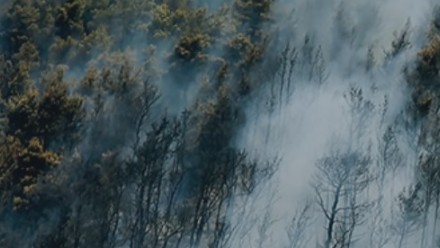Harms from bushfire smoke: “yesterday was the time to talk about it”
AFTER witnessing the possible impacts of bushfire smoke on a prematurely born baby, Albury GP Dr Rebecca McGowan hasn’t been sleeping well at night.
The baby’s mother had been in the first trimester of her pregnancy when smoke from some of the worst bushfires in Australian history enveloped the city, which is on the New South Wales-Victorian border.
“Our visibility was down to about 100 m for weeks on end,” Dr McGowan said.
Dr McGowan – who is a member of the Royal Australian and New Zealand College of Obstetricians and Gynaecologists and provides shared care to her patients – said the baby was small for age and had respiratory problems.
“Now, I don’t know if the baby’s respiratory problems are directly related to the bushfire smoke … [but I believe] the medical profession needs to say that climate change is right here, right now and yesterday was the time to talk about it. Failing that, it’s urgent that we talk about it today.”
Dr McGowan said she has had several patients this year that have had fetal growth restriction, retained placenta post-birth, and premature delivery. “It’s not just one patient,” she said, acknowledging that reports were anecdotal at this stage. “We can’t draw a direct conclusion at the moment, but more study is needed in this area.”
She pointed to the large 2019 North American study looking at more than 500 000 pregnant women that has shown significant impacts on babies born to wildfire smoke-affected mothers where small-for-dates and pre-term babies were found in increased numbers.
“We are scientists … and we are seeing the possible effects in babies. These babies may live with the effect of their mums inhaling that toxic smoke for the next 80–90 years.”











